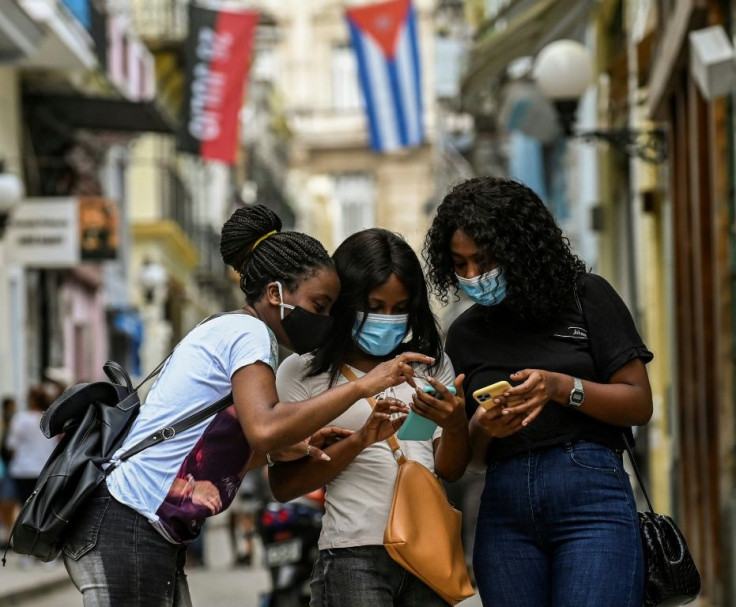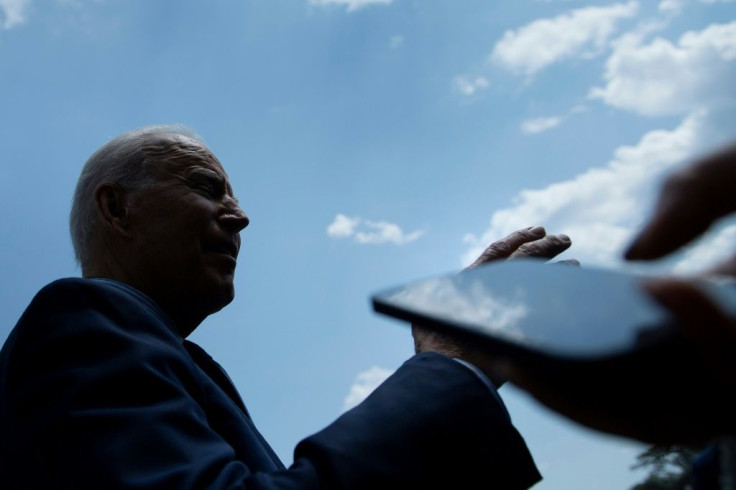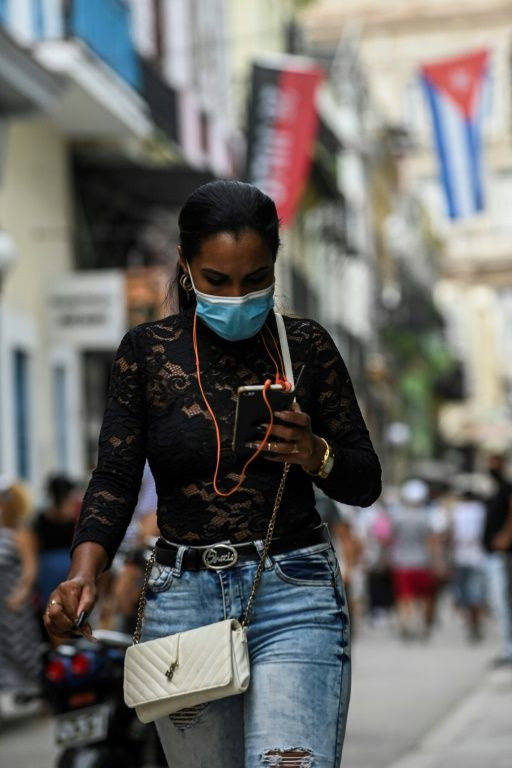Can The US 'Restore' Internet To Cuba?
President Joe Biden's suggestion that Washington bring full internet access to Cuba following government restrictions could break new ground on digital rights but face major technical and geopolitical hurdles.
Biden's statement followed calls by Republican Senator Marco Rubio and Florida Governor Ron DeSantis, who said the US should look at satellites, balloons and offshore hotspots to deliver unfiltered connectivity to Cuba.
"They've cut off access to the internet. We're considering whether we have the technological ability to reinstate that access," Biden told reporters Thursday.
Human rights activists have welcomed the idea of giving Cubans an unrestricted internet after the regime cut off many apps and services as it faces down its biggest protests in memory.
But it would not be like flipping a switch, analysts say.
If an effort were made to bypass the state monopoly, "I'm not sure how timely or easy that would be," said Milton Mueller, a Georgia Tech University professor and director of the Internet Governance Project.

"If the Cuban government cuts off access, there is not any easily accessible way to connect with a balloon or drone."
Cuba has been limiting both fixed and mobile internet access with cuts to some apps like Facebook and Instagram, and has used other methods to filter online content with Chinese-made technology, according to Gaspar Pisanu of the digital rights group Access Now.
"They are removing people's ability to use mobile data by revoking their SIM cards, censoring hashtags, blocking messages about VPNs," Pisanu said.
Democracy activists in authoritarian regimes have used a variety of techniques to get around internet limitations including virtual private networks (VPNs), "mesh networks" connecting clusters of computers and techniques to conceal their activities, but none have been used on a large scale.

Satellite, drone and balloon internet services remain at an early stage and often are delivered through official carriers.
But Havana would likely consider any effort to bring an unfiltered internet a violation of its sovereignty, according to the human rights group Freedom House.
"The Cuban legal structure is not favorable to internet freedom, and the country lacks an independent judicial system that could counter government efforts to suppress independent online activity," Freedom House said in its 2020 report.
"The constitution is silent about citizens' rights of access to information" and Cuban law condemns the use of the internet "toward the subversion and destabilization of sovereign nations," Freedom House said.
Backers of an open internet for Cubans argue that free expression and access to information are fundamental rights endorsed by the United Nations.
"The internet is a basic human right during a digital era because it is vital for work, public services, political expression, and general communications," said Darrell West, a senior fellow at the Brookings Institution Center for Technology Innovation.
"It is fair game for the United States to offer internet service from afar because Cuba is an authoritarian country and its government has closed down the service that used to be available to its citizens."

Sebastian Arcos, associate director of the Cuban Research Institute at Florida International University, welcomed the calls from Biden and others, and argued that "the Cuban regime has been abusing the concept of sovereignty" to repress its population.
Mueller said delivering the internet to Cubans "would be morally justifiable if you could do it technically" because of international principles supporting free expression and association.
But he added that "it could be problematic given the history of the US and Cuba," including the Bay of Pigs invasion and the decades-long occupation of the island by the United States.
An alternative internet plan "would stiffen the resistance of the Cuban government and give them an excuse to claim it is some kind of an imperialist action by the US," Mueller added.
Pisanu said that his organization is calling on Cuba to fully restore connectivity, without promoting an alternative internet.
"We need to keep asking and demanding the government of Cuba to allow the people to regain access to the internet, that should be the key priority," he said.
Anything further, he said "requires broader analysis and geopolitcal considerations."
rl/dw
© Copyright AFP {{Year}}. All rights reserved.




















